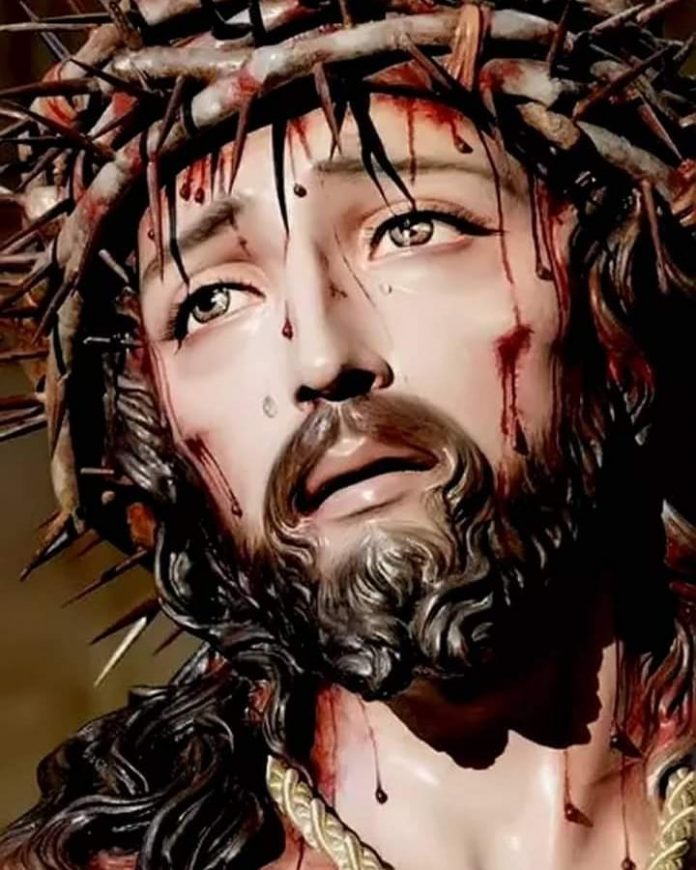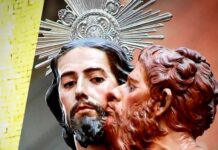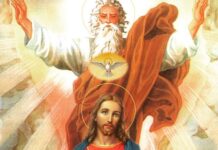Welcome back. After a short gap we are back with the Book of Revelation. Today we are studying the message to the church in Sardis, the fifth church out of seven mentioned by name. Sardis was an important city and commercial centre in the ancient Lydian empire. It was famous for its wealth. Tradition says that the entrepreneurs of Sardis were experts in extracting pure gold and silver, the quality of which none other in those days could achieve.. History supports this view to a certain extent and some scholars credit Sardis for minting coins in pure gold and silver for the first time. It is a settled fact that Sardis was a rich city. Croesus, the king of Lydia in 6th century BC was famous for his wealth to the extent that a phrase ‘as rich as Croesus’ is used even now.
The king and people of Sardis thought their city was well protected because of its geographical location. Yet it had to suffer many attacks during its long history. Security is different from the false notion of being secure. Today, but for the reference in the Book of Revelation, nobody remembers Sardis. The remnants of this once prosperous city can be seen at Sart, a small town off the Ankara- Izmir highway in western Turkey.
When we studied about the churches in Ephesus, Smyrna, Pergamum and Thyatira, we noticed that Jesus Christ never hesitated to appreciate them for the good works they have done. But when it comes to Sardis, Jesus is silent. He does not comment on anything good that he saw in Sardis. Because he could not find anything worth appreciating there! Instead what he saw was a church that deserved admonishment and the Lord does not mince his words. ‘I know your works; you have a name of being alive, but you are dead. Wake up, and strengthen what remains and is on the point of death, for I have not found your works perfect in the sight of my God’ (Rev 3:1-2).
These days we see a number of dead churches around us. The common thread connecting all of them is that they have a name of being alive. But in fact, they are dead, though they do not know it. It is quite natural because a dead man knows nothing. Looking from a distance, some Churches and communities seem to be highly dynamic and bustling with activity. It is true that they are doing so many things for the welfare of their members and for the common good of the society. They are active in humanitarian aid, in environmental protection, in supporting migrants and in adapting the church to the needs of a modern world. Looking at them Jesus says; ‘I know your works’. You think that yours is a lively church, but Jesus Christ knows everything. What is visible externally may not be a true reflection of things lying underneath.
You have earned a good name for your social service and works of mercy. You rate yourselves as a vibrant, living church. But Jesus knows everything. Jesus judges our works not with our yardstick. He has the measuring rod of God with him. If our works are not perfect in the sight of God, we too should expect harsh words from the Lord.
The people of Sardis thought that their immense wealth would make them happy. It indeed made them happy, but it did not last long. God is interested not in our happiness, but in our holiness. The degeneration of Sardis from a lively church to a dead one has many parallels in history, the most striking one being the fall of their city from a place of prominence into an obscure village over centuries.
After a stinging rebuke as introduction, Jesus gives the dead church in Sardis a ray of hope. There is still the possibility of revival. God can raise even the dead. God can heal those at the point of death. We need to do only one thing. Strengthen what remains with us. A little faith, a little hope, a little love is all that God wants to revive us. If Jesus could multiply five loaves of bread to feed five thousand, he can rekindle the little flame of faith in us. He can replenish our wine of hope and our oil of love. Jesus’ call to Sardis is a wake up call, an urgent one indeed, because revival is possible only as long as the embers are intact. This is why Jesus advises them to strengthen what remained and was on the point of death.
In fact the church in Sardis was a community comprising three different categories of believers. Every church does have these three distinct groups among them, for that matter. First category is the dead, with no scope of revival. It is not because God cannot raise them, but they prefer death to life. Second category is those at the point of death of whom we shared some thoughts now. Third category are those believers who hold fast to the faith even in a dead church. Sardis also had their share of such believers of whom Jesus says; “Yet you have still a few persons in Sardis who have not soiled their clothes; they will walk with me, dressed in white, for they are worthy” (Rev 3:4). They are the remnant! They are worthy to walk with the Lord.
To become a part of that remnant in a fast degenerating church is the true call of every believer. We are built for this moment. To be the remnant! To be one among those seven thousand, ‘God has kept for himself and who have not bowed the knee to Baal’. Blessed are they and may their numbers go up.
For the rest of us, who are either dead or at the point of death, the writing on the wall is very clear. ‘Remember then what you received and heard; obey it, and repent. If you do not wake up, I will come like a thief, and you will not know at what hour I will come to you’ (Rev 3:3). We are warned sufficiently early. It is a call to repent and cleanse our clothes, the white cloth of grace that we received at the time of baptism. Jesus knows that a big fight is awaiting those who take this call to repentance seriously. To fight and conquer is our duty and Jesus is waiting at the finishing point with his reward.
And the reward? It is the same for those who are going to conquer and those who have already conquered. ‘If you conquer, you will be clothed like them in white robes, and I will not blot your name out of the book of life; I will confess your name before my Father and before his angels’ (Rev 3:5).
Let us not be under the false impression that everything is fine with us. We may not know the decay and degeneration that has crept into our churches as well as our own lives. But Jesus knows everything. This is the time to shun death and embrace life. For that, the ember of faith within us should be rekindled.
Let us pray to the Holy Spirit to strengthen us in faith so that we may be found worthy to receive those white robes Jesus has prepared for us.










